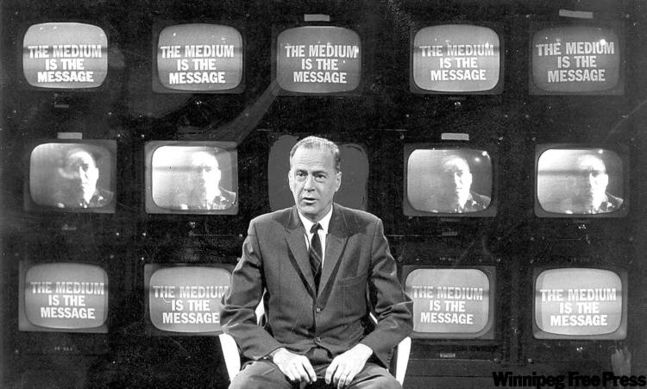Michael J. Arlen wrote a very funny, and, I think, very unfair piece about Marshall McLuhan in the April 1, 1967 edition of the New Yorker (paywalled here). It was a response to an NBC Experiment in Television program which featured the thoughts of the media and cultural critic. Arlen depicts McLuhan as master of the obvious, which at least wasn’t the usual critique. But I think history scores it a solid win for McLuhan. From the piece:
“The NBC program provided a fairly broad embrace, as these things go. ‘The electric age is having a profound effect on us,’ intoned the narrator, paraphrasing McLuhan. ‘We are in a period of fantastic change…that is coming about at fantastic speed. Your life is changing dramatically! You are numb to it!’ And ‘The walls of your rooms are coming down. It is becoming a simple matter to wire and pick out of your homes your private, once solely personal life and record it. Bugging is the new means for gathering information.’ And ‘The family circle has widened, Mom and Dad! The world-pool of information constantly pouring in on your closely knit family is influencing them a lot more than you think.’ Well, O.K. But it all sounds too much like the revival preacher, who really doesn’t tell you anything about hellfire you didn’t know before but who tells it to you more forcefully, with all the right, meliorative vogue words (‘fantastic change…fantastic speed…dramatically…numb’), and so makes you feel appropriately important and guilty in the process. In this instance, McLuhan tells us, the fire next time will be technological and lit by an electric circuit, but, having told us that, the preacher seems content to take up the collection and walk out of the church, leaving us with happy, flagellated expressions and a vague sense of having been in touch with an important truth–if we could only remember what it was.”
Tags: Marshall McLuhan, Michael J. Arlen

